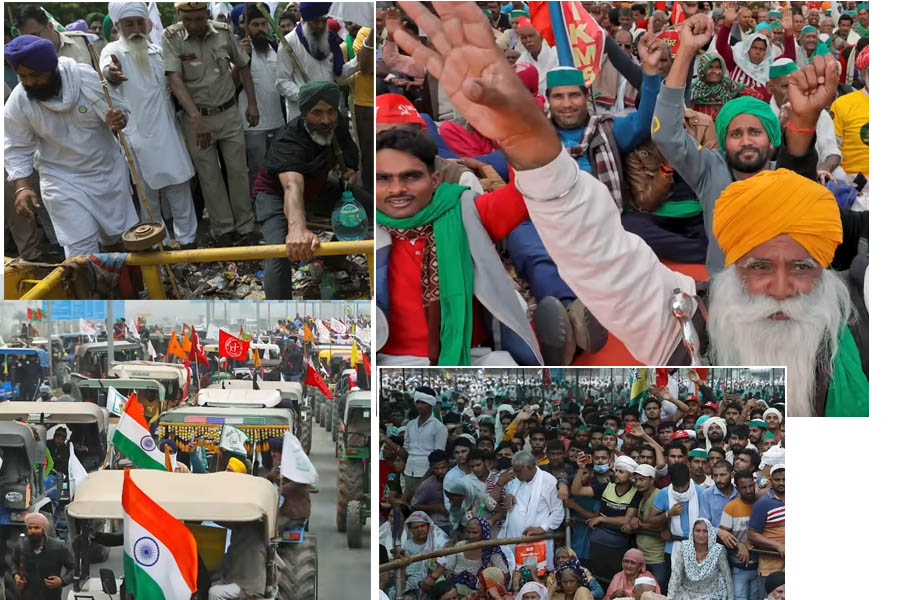
Indian farmers, resolute in their demands for agricultural reform, are set to resume their march towards Delhi this week, rejecting a government proposal aimed at assuaging their concerns. The proposal, offering to purchase certain crops at guaranteed prices over a five-year period, failed to meet the farmers' key demand for a legal guarantee on Minimum Support Price (MSP) for all 23 crops.
The farmers, who wield significant political influence in India, have made it clear that they will not be swayed by partial concessions. With their eyes set on Delhi, they are determined to assert their demands for fair treatment and economic security.
Prime Minister Narendra Modi's government, cognizant of the farmers' voting power, is under pressure to address their grievances without risking alienation. The Bharatiya Janata Party (BJP), eyeing a third consecutive term in power, cannot afford to antagonize this crucial demographic ahead of upcoming general elections.
The current standoff echoes the protests of 2020, which saw farmers camped at Delhi's borders for months, ultimately forcing the government to repeal contentious agricultural reforms. This time, farmers from Haryana and Punjab have reignited their protest, citing unmet promises from previous demonstrations and pressing for additional concessions such as pensions and debt relief.
Central to their demands is the enactment of legislation guaranteeing MSP for crops, a system introduced in the 1960s to ensure food security and protect farmers from market volatility. Proponents argue that MSP safeguards farmers' livelihoods and incentivizes agricultural innovation, thereby bolstering productivity and mitigating exploitation by middlemen.
However, critics contend that the current MSP framework is unsustainable and poses fiscal challenges for the government. They warn of long-term repercussions including over-cultivation and storage inefficiencies, advocating for a comprehensive overhaul of agricultural policies.
Despite rounds of negotiations between farmers and government officials, tensions remain high, with farmer leaders expressing dissatisfaction over the lack of transparency in the talks. Federal minister Piyush Goyal, while optimistic about finding a mutually beneficial solution, acknowledges the complexity of balancing the interests of farmers, consumers, and the broader economy.
As the farmers prepare to resume their march, the nation braces for renewed protests and the inevitable political repercussions. The outcome of this standoff will not only shape the future of India's agricultural sector but also test the government's ability to navigate complex socio-economic challenges in an election year.